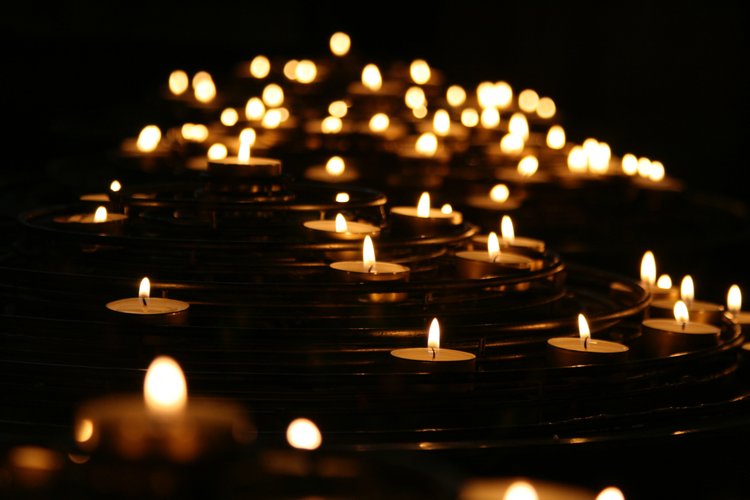March 2022 News!
The definition of impact is “the action of one object coming forcibly into contact with another; have a strong effect on someone or something.” Our definition of impact is what we collectively did because of the force of all of you.
In February, we asked you to engage with the Jackson Roeder Memorial Fund to help us honor our son on behalf of his 30th birthday. And boy did you show up. Because of your interaction and willingness to share, our Facebook post alone reached over 7,300 people. That is impact. Thank you for showing up on our behalf.
We know that celebrating and remembering Jackson now is very different than it used to be. It too is another circumstance we’ve had to adapt to as we navigate this life without him. We’ve learned that it is important and necessary for us to continue to celebrate the milestones and memories that keep him close to our heart. If you are also walking a similar path of grief, we see you and we share our love and compassion with you.
We appreciate you all so much.
Reyne & Scott Roeder

#30actsforjackson

Walking the Path of Grief
If you are reading this, you may be someone who had to steady yourself for the sudden and unexpected changes to your world that occurred as a result of the suicide of a loved one. You may not know where to start or whether you are experiencing all of the emotions connected to suicide grief. As you navigate these roads, you will find yourself facing different and sometimes intense emotions, punctuated with memories of your loved one and the impact they had on your life.
One of the things I know for sure is that grief happens, whether we are prepared for it or not, and whether there is room in our lives for it. It shows up in both predictable and unpredictable moments, in images and memories that simultaneously can bring joy and pain. Grief is a reflection of the connection we had to who (and what) has been lost. Allowing ourselves to grieve honors that connection. It is no different with suicide grief, and perhaps even more important that we allow our grief to happen.
Here are some other things I know for sure about suicide grief:
-
There are ways to practice self-care while grieving a suicide loss (and it’s important!)
Even though grief from a suicide loss can sometimes feel overwhelming, it is important to make sure that we do as much as we can to take care of our body’s basic needs as we grieve. Make sure to drink enough water, get some gentle daily exercise and sleep when you can. Ask others to help you so you can take a nap, get out for a walk in nature, or prepare some nutritious food, for example. -
Grieving a suicide loss takes time. You don’t have to be “over” it.
Getting to a place in which your grief doesn’t feel as raw and painful as it does at first will take time. There’s no way (or no need) to rush it. We don’t get over the loss of a loved one to suicide, we get through it, and there is no set timetable for the emotions that occur. -
Others will grieve differently than you, even when experiencing the same loss.
Human relationships are both unique and complex. Our experiences of suicide loss are a reflection of our individual relationships with our loved one. No one on the planet had the exact relationship that you had with the person you lost. Let yourself grieve the way you need to. -
You don’t have to have all of the answers to begin healing.
You may not know everything that contributed to your loved one’s death by suicide or how you will go on without them. You can still heal. Leave yourself open to what you may discover about yourself and your relationship with your loved one as time goes on. It’s okay to think differently about the loss as time passes. Healing can happen whether the path is clear or not. -
Grieving can be exhausting. Take time to rest and recharge.
Days where our grief is particularly difficult can physically feel like we have run a marathon. This can be especially true on days in which you have been more present with your grief (such as those in which you share your feelings in a suicide loss support group or a therapy appointment). Build in some time for rest and recovery during these days by asking those around you to help lessen your daily load, such as help with errands or other tasks. People often want to help after a suicide loss, but may not know exactly what would be helpful to you. -
Your grief is not a burden. It is an expected reaction to loss.
We grieve because we experience love and connection. No need to apologize for your grief or your changing emotions in response to losing your loved one to suicide. -
It’s okay to say their name, even if others can’t right now.
Say their name, even if you are the only one that can in the moment. Doing so also helps others to know that it’s okay to talk about the person who has died by suicide, and that you want to do that. Sharing stories and memories can be healing. -
There are resources out there to support you in your grief.There is a community of suicide loss survivors who want to support you as you grieve. For more loss resources visit afsp.org/loss.
ASIST: Applied Suicide Intervention Skills Training
Efforts to help make this a suicide-safer community and world can start when people learn new skills, selflessly give time and talents, and are willing to serve others so they too can know that their lives matter regardless of how they might be feeling.
ASIST (Applied Suicide Intervention Skills Training) is a two-day, 16-hour course that teaches people how to provide a skilled suicide intervention to help individuals battling suicidal ideation stay safe for now.
ASIST is taught by instructors trained through LivingWorks, a worldwide leader in suicide intervention training.
Three identical ASIST trainings will be offered at Bethlehem Lutheran Church in St. Cloud on:
Monday and Tuesday, March 28-29
Thursday and Friday, May 19-20
Monday and Tuesday, June 6-7
Each training meets from 8:30am to 4pm in the Magi Room. You must attend both full days of this training. Cost to attend is $150/person including instructors, materials, and lunch.
Resources & Can't-Miss:
safeTALK Training
Event from SafeTALK training that will focus on farm, ranch, and rural suicide prevention. (Did you know rural suicide is 2-3.5 times more prevalent than urban?) Tuesday, April 5th at 9:30am at the Tuscan Center in St. Cloud.
What Leaders Get Wrong About Mental Health
Article from Entrepreneur shining a light on mental health and burnout, including a recent study sharing how workers believe employee mental health is a shared responsibility between employees and employers.
Grief Retreat for Moms
Weekend retreat in Danbury, WI in July featuring Kelli Nielsen “The Grief Guru” who lost her son to an accidental overdose in 2018. Walk with other moms who are grieving lost children, learn recovery skills, and sink into selfcare for an entire weekend.
National Suicide Prevention Lifeline
1-800-273-8255 or text “MN” to 741-741
